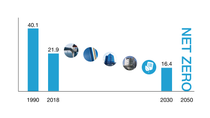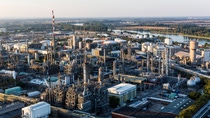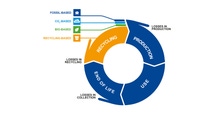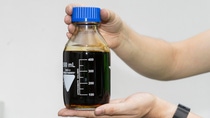Performance Polymers
Sustainability
At BASF Performance Materials, we are dedicated to forging a sustainable future, a commitment we call #OurPlasticsJourney. And we invite you to join us on this journey.
Our passion lies in making a meaningful impact on both the environment and society. We believe our high-performance plastics are key to not only delivering sustainable solutions but also enhancing the success of your products.
Are you curious about...
Product Carbon Footprint
Circularity
Recyclability
These questions can be complex and challenging to address, as your journey toward sustainability largely depends on your unique requirements.
We’re here to help you navigate the options and identify which sustainability solutions align best with your needs.
Together, we will discover the optimal path.
Discover our sustainability offerings
Our sustainability portfolio features mass-balanced products made from biomass (BioMass Balance) and recycled raw materials (ChemCycling®), as well as their combination (Combi-claims).
Additionally, we provide bio-based raw materials, recyclable options, compostable and biodegradable biopolymers, and products designed with a reduced carbon footprint (low PCF and zero PCF).
Product Carbon Footprint
Circularity
Recyclability
What other customers say?
Why you can trust us
BASF has a successful track-record of sustainability efforts! Since 1990, we have halved our carbon dioxide emissions while doubling our sales volumes.
And the best part? We are confident that what we've achieved over the past three decades is just the beginning; we are determined to reach even greater heights in the future!

From 2030 onwards, we further intensify our actions to reduce our CO2 emissions. For Performance Materials, it means:
- Switching all our sites to green electricity
- Transition to more environmentally friendly blowing agents for PU
- Implement low carbon steam and investigate the use of heat pumps
- Continuous Operational Excellence
BASF’s Performance Materials has a two-fold target for 2030:
- The carbon management measures will bring the emissions (scope 1 & 2) down by another 25% compared to 2018 and scope by 15% compared to 2022 for the scope 3.1.
-
At the same time, we want to reach a 20% sales share of Close-The-Loop Solutions (biodegradable/compostable products and products with at least 20% of recycled or bio-based content).
This is only when all levers and measures will be used to the greatest extent that BASF will consider offsetting emissions to reach its final goal of being net zero.
From 1990 to 2018, we have reduced by half our carbon emissions while doubling our sales volumes.
BASF Performance Materials Production Sites and R&D Centers Network

APAC
- 20 production sites
- 6 R&D centers
- 5 sites using green electricity
- 8 sites certified ISCC+ / RedCERT²
North America
- 14 production sites
- 2 R&D centers
- 8 sites using green electricity
- 3 sites certified ISCC+ / RedCERT²
EMEA
- 10 production sites
- 3 R&D centers
- 8 sites using green electricity
- 8 sites certified ISCC+ / RedCERT²
South America
- 3 production sites using green electricity
- 1 R&D center
Stories, News and Events
Consult with an expert
Self-service solutions:



























